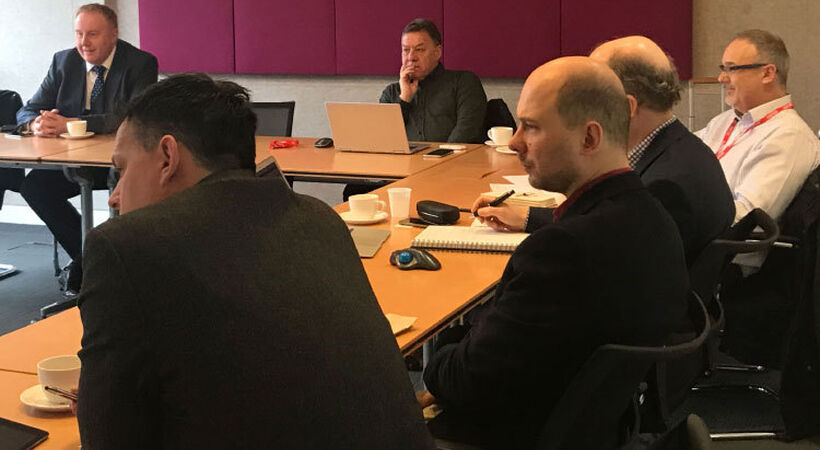Smart Buildings Magazine - Round Table - Smart buildings and data analytics; where are we now and what is the future?
The latest Smart Buildings Magazine Round Table was hosted by IBM at their offices on The South Bank, and was ably moderated by Trevor Miles, Real Estate & Facilities Smarter Buildings Consulting Lead.
The topic under discussion was ‘Smart buildings and data analytics; where are we now and what is the future?’
In attendance were:
• Darren Pearson, engie • Mark Tyson, Capita • Paul Mason - Honeywell • Mark Davenport, Smart Buildings Ltd • Dave Lister, Beckhoff • Ed Kibardin, Mitie • Trevor Miles, IBM • Martin Harvey, ISS
The debate started with a discussion on whether there was the right amount of analytical resource in the industry. HVAC and energy are the main areas where data is being collected and it is important to work out what data the client wants. Clients are asking suppliers for more data points to base their decisions on. A lot of the market at the moment is retrofit, and smart systems are a generation of installation away.
Mark Tyson stated that energy is much more analysed than HVAC at the moment. He also said that process is the problem, not equipment. At the moment there is little joined up thinking in the industry. There are lots of technical solutions but a lack of communication to implement ideas. However, according to Trevor Miles energy monitoring and occupancy detection is more advanced but other areas are weaker at the moment.
It’s most difficult to join all the areas of a building together commented Mark Davenport and there is a need to work out what the client wants. But Paul Mason asked what is the best business model for the client and the vendor?

Trevor Miles asked the question: "Are wellness and productivity important?" The answer was a yes from the panel however Mark Tyson added the caveat, "Don’t blame the engineers!" He stated that it basically comes down to the health of the employees and using data to make the environment better. It is an area that will become legislated. Ed Kidbardin said that wellbeing is an abstract concept for management at the moment. He gave the example of WeWork, that has a simple concept that works. Finally he added that companies are worried about not being able to let their buildings because the buildings are not clever enough.
Mark Davenport asked, "What are the technologies that are on the horizon? Will people want fixed work places?" Retrofit might not be possible with some of the technologies, and Mark Tyson added that engineers can solve problems. We need to use simple metrics that everyone understands as people won’t put up with dumb buildings. Mark Davenport interjected asking whether the building needs a dedicated operating system? He then added that FM companies have given a discount because a smart building can solve some of their issues.
Dave Lister stated that there was a need to think about getting technology to smaller companies and buildings and that legislation will be the big game changer, as will the lower cost of equipment.
Paul Mason said that predictive maintenance is changing the role of technicians and that the industry needs to educate end users and business owners. Clients want to understand their real estate and be able to predict costs according to Martin Harvey. Dave Lister claimed that not enough qualified engineers are being produced.
Clearly, data will become of even greater importance in managing buildings and their use in the coming years, but there are a number of issues that the panel raised which the industry will need to address before building owners will be able to maximise the ‘smartness’ of their buildings. Legislation will continue to drive how data is used and managed. Artificial Intelligence can now help with the analysis of the data. It will be interesting to see the next steps that will be taken.







